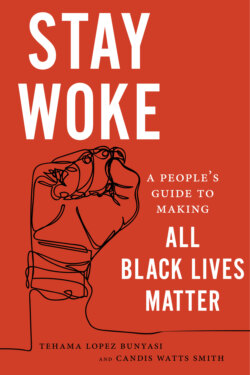Читать книгу Stay Woke - Candis Watts Smith - Страница 14
На сайте Литреса книга снята с продажи.
Employment
ОглавлениеIf you do not want to be poor, it is logical to believe that you should go to school and get a job. But layered on top of unequal access to high-quality education, Black people and other people of color, on average, are treated differently from whites in the realm of employment, which results in racial inequality in employment rates, levels of income, and consequently, rates of poverty. Just for your information, most poor people are not Black (they are white), and most Black people are not poor; but Black people and other people of color, on average, do not fare as well as whites in the realm of employment in the United States.
During the forty-fifth president’s first State of the Union Address, he mentioned that Black unemployment rates were at the lowest in US history. The Black Congressional Caucus did not applaud, as most audience members did. This could be because they weren’t feeling the president, but it could also be that throughout recent US history, Black unemployment rates have been, and still are, twice those of whites. Our data from the Bureau of Labor Statistics provide evidence of this fact for over five decades, and the economist William Darity notes that the racial gap in the unemployment rate has not improved since the passage of the Civil Rights Act of 1964.51 What’s more, labor-force statistics from the US Census Bureau show that at every level of education, Black unemployment rates are about twice as high as white unemployment rates. Blacks with a college education or even an advanced degree have about the same rate of unemployment as whites without one, revealing that while more education does help to decrease chances of unemployment, the effects differ across racial groups. Blacks with a college education or even an advanced degree fare just about as well as whites with some college but no degree.
Unemployment rate by race, 1972–2018. (Data compiled from the Bureau of Labor Statistics, 2018)
Unemployment by race and education. (Data compiled from the Bureau of Labor Statistics, 2015)
Why does this happen? Because discrimination still occurs in hiring and promotion practices: “[Discrimination] is not the only or even the most important factor shaping contemporary opportunities. Nevertheless, it is important to understand when and how discrimination does play a role in the allocation of resources and opportunities.”52 In an audit study, scholars sent out equivalent résumés with identifiably Black names (e.g., Jamal and Lakisha) and ones that are statistically white (e.g., Brad and Emily); they found that white names triggered 50 percent more callbacks than Black names.53 In a similar study, the sociologist Devah Pager found that white men with a criminal record have about the same chances of getting called back for a job as Black men without a criminal record.54 These differences in callback rates provide evidence of a barrier in employment due to race. Despite the fact that there have been policies put into place to prevent discrimination, these inequities still exist, and there is little recourse one can gain in this environment because proving that an employer intentionally discriminates is an incredibly difficult feat these days.
—
